
The Arctic Program at the Institute for European, Russian, and Eurasian Studies consists of multiple research initiatives dedicated to the study of the Arctic and its changing climatic, economic, and social conditions. These initiatives bring together scholars, scientists, and students, not only from across the George Washington University, but from partner universities and institutions from around the world. With support from sponsors including the National Science Foundation, the Belmont Forum, and the Ministry of Foreign Affairs of Norway, these international coalitions stand at the forefront of better understanding this diverse region, the convergent challenges it faces, and providing high quality research to local and international policymakers. Explore these ongoing research efforts and the contributions being made by IERES faculty below.
The Director of the Arctic Program is Dr. Robert Orttung.
Research Initiatvies
Partnerships for International Research and Education (PIRE): Promoting Urban Sustainability in the Arctic
Sponsor: National Science Foundation
Project Dates: 2016-2021
Principal Investigator: Robert Orttung
Co-Princial Investigators: Marlene Laruelle, Timothy Heleniak, Nikolay Shiklomanov, Dmitry Streletskiy, Ryan Engstrom, Lisa Benton-Short, Melissa Keeley, and Michael Mann
GW Collaborators: IERES, Sustainable GW, ESIA, CCAS/Dept. of Geography
PIRE: Promoting Urban Sustainability in the Arctic engages an international network of scientists to develop an Arctic Urban Sustainability Index. The Arctic Urban Sustainability Index will be used to measure the effects of anthropogenic expansion, inform policy meant to mitigate these effects, and assess progress towards sustainable solutions in Arctic cities that are growing due to resource development projects. The Index will address a complex set of systems unique to the Arctic with numerous important variables, including thawing permafrost, a boom-bust economic cycle, and an influx of migrant workers with the resulting increase in social tensions. By working with international partners, our researchers will gain crucial access to cities of the Arctic outside of the United States, building relationships with local policy-makers and populations, and acquiring data most easily obtained by local researchers.
Visit the project’s website for more information here.
Project Partners:
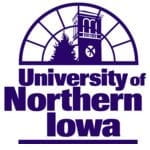
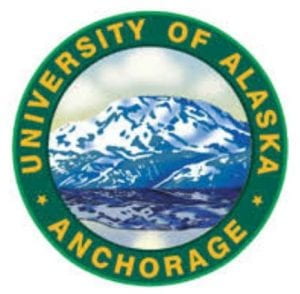



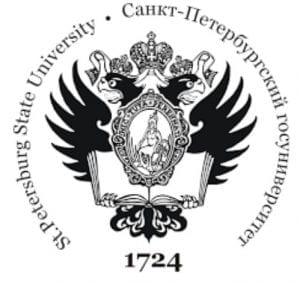
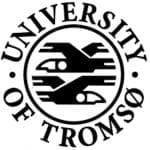
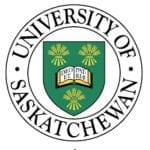
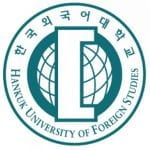
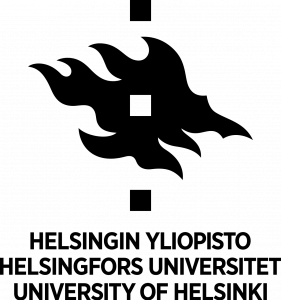

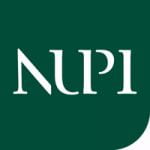
Great Powers and Arctic Politics (GPARC)
Host Institution: Norwegian Institute of International Affairs
Sponsor: Arktis 2030, The Ministry of Foreign Affairs
Project Dates: 2017-2020
Principal Investigator: Elaine Wilson Rowe
Co-Principal Investigators: Helge Blakkisrud, Jakub M. Godzimirski
External Partners: Robert Orttung, Yun Sun, Alexander Sergunin, Alf Hakon Hoel
The GPARC team analyzes the 1) role of domestic networks in shaping policy preferences and 2) the impact of multilateral assessments and decisions on these national preferences and networks. In other words, we analyze two policy traffic directions – from domestic networks in Washington, Moscow and Beijing and outwards to international forums on Arctic maritime politics and from the Arctic Council (or other producers of international policy positions) into these domestic networks.
Visit the project’s website for more information here and watch Dr. Robert Orttung and other project participants present in the project’s final conference: NUPI’s Russia Conference 2020 – Great Powers and Arctic Politics.
Local Government Response to COVID-19: Juneau Alaska, A Case Study in Adaptive Governance, Risk Management, Communication, and Descision-Making
Sponsor: National Science Foundation
Project Dates: 2020-2021
Principal Investigator: Robert Orttung
Co-Principal Investigator: Hana Akselrod
GW Collaborators: IERES, Sustainable GW, GW School of Medicine
Anticipating the spread of COVID-19 in Alaska, local communities are assessing their response capacity in terms of emergency medical facilities, policy making, and preventative cultural practices. Subarctic and arctic local governments are overwhelmed with the need to provide information about the risks presented by the virus. This project will provide a detailed study of the coastal community of Juneau, Alaska (pop. 32,061) as a pilot for examining formal and informal institutional responses and adaptive capacity in facing an unprecedented viral outbreak in isolated areas with few resources. Researchers will examine how decision makers interacted with various social groups, including Indigenous communities, and how they made use of local knowledge. This research will track in real time the responses and identify areas where they were effective and where bottlenecks occurred that prevented effective coordination. The results will identify lessons learned during the pandemic and provide guidance on how official and societal groups can better collaborate in future crises.
This study makes several scientific and practical contributions. First, the project will deliver a case study of a disaster response in a remote, isolated Alaskan community with limited infrastructure and capacity. Second, this study will test in real time current knowledge on crisis responses, helping us identify weaknesses in existing theories of adaptive governance, resilience, local self-organization, and disaster communication. Finally, drawing on the findings of the study will make it possible to provide a model of effective crisis response for similarly situated isolated communities. The results will have implications for other northern communities as well as other isolated, remote areas of the country.
Arctic Community Resilience to Boreal Environmental Change: Assessing Risks from Fire and Disease
Sponsor: Belmont Forum, NSF
Project Dates: 2020-2023
Principal Investigator: Stephen Arnold
Co-Principal Investigators: Robert Orttung, Christine Wiedinmyer, Katharine Law, Svetlana Malkhazova, Marianne Tronstad Lund, Bertil Forsberg, Joakim Langner, Tuukka Tanela Petaja
The Arctic is warming twice as fast as global mean temperature increases. High latitude communities are searching for ways to address the consequences of an increase in temperatures and heat extremes. Using an interdisciplinary approach, we aim to address two key pathways between these rapid changes and risks to human health across high latitudes: climatically-driven changes to landscape fire activity and associated air quality degradation, and natural-focal disease (NFD) occurrence. The pan-Arctic region is characterised by vast boreal forest areas, which are prone to intense vegetation fires, acting as a source of air pollutants. Several extreme Boreal fire seasons in recent years have led to widespread increases in pollution, and associated health impacts. The natural boreal landscape incorporates hosts and vectors of NFD, with strong sensitivity to warming. Warming, humidity changes and weather extremes at high latitudes have led to tick-borne diseases becoming more endemic in these regions. These risks are potentially linked through fire impacts on NFD hosts and vectors. There is potential for widespread changes in these climate-health pathways under warming, but lack of understanding regarding their severity and capacity for resilience among local communities. In collaboration with local Arctic community groups, and other stakeholders, we will develop a framework for an end-to-end assessment of climate change impacts on these health risks, and create credible projections of how they will respond and interact under a range of climate and urban development scenarios. Outcomes will include information for communities and local policy makers for minimizing risks and an interactive online dashboard for visualisation of scenario data and impacts. We will work with community groups in education, faith-based groups, among others, to ensure widespread impact. A legacy of the project will be an online dashboard tool for mapping and visualising future and past risks and impacts, and incorporation of outcomes into local and national risk management planning.
Find out more informaton on the project in the video below.
Building Socio-Ecological Resilience through Urban Green, Blue, and White Space (SERUS)
Sponsor: Belmont Forum, NSF
Project Dates: 2020-2023
Principal Investigator: Marlene Laruelle
Co-Principal Investigator: Vera Kuklina
The project “Building Socio–Ecological Resilience through Urban Green, Blue and White Space (SERUS)”is an initiative to improve several aspects of the Arctic urban resilience. It seeks to advance a cross–disciplinary climate–ecology–policy (CEP) approach. We hypothesize that different views on urban open space may facilitate creation of truly trans–disciplinary resilient and sustainable development strategies. The project’s objective is to collect new data and knowledge, to gain skills and expertise, to exchange this knowledge with local communities, integrate diverse data using innovative data fusion technology and to create holistic understanding of urban open space in the Arctic cities.
Find out more informaton on the project in the video below.
Navigating Impacts of the Arctic Tourism Industry on Nature, Commerce, and Culture in Northern Communities (ACT)
Sponsor: National Science Foundation
Project Dates: 2020-2024
Principal Investigator: Stephen Arnold
Co-Principal Investigators: Robert Orttung, Christine Wiedinmyer, Katharine Law, Svetlana Malkhazova, Marianne Tronstad Lund, Bertil Forsberg, Joakim Langner, Tuukka Tanela Petaja
GW Collaborators: IERES, Sustainable GW, GW School of Business
External Partners: University of Alaska Southeast, University of Colorado
This study will advance understanding of convergent challenges in the Arctic and Subarctic by systematically analyzing the impacts of the rapidly growing cruise ship tourism industry, a problem identified by Arctic and Subarctic communities themselves. The COVID-19 pandemic has essentially cancelled the cruise season for 2020, but we anticipate that the cruise ships will return in 2021. While there may be economic benefits to the destinations visited, the tourists bring numerous negative consequences. These include air, water, and noise pollution, environmental degradation, and cultural effects such as the overcrowding of ports and adjacent areas and a sense of being overwhelmed by tourists among local populations. The overarching goals of the project are to: 1) systematically document, compare and interpret the ways in which cruise ships in Arctic and adjacent waters are impacting coastal communities; and 2) work together with local decision makers to develop a set of data-driven community-defined indicators to determine policies to enhance local adaptive capacities for identifying, monitoring, forecasting and responding to effects from cruise ships. The project will develop methods to create a set of indicators to measure the integrated social-ecological systems in which tourism functions and assess trade-offs among developments that are likely to occur with various scales and configurations of tourism.
Within the context of a warming Arctic, this project will address the challenges cruise ship tourism poses to the natural, social and built systems of coastal communities in Alaska (Juneau and Nome), Iceland (Akureyri), Sweden (Visby), and Norway (Bergen). The project will advance the boundaries of science by examining methods to enable community policy makers to make optimum use of data-based indicators to improve outcomes for local communities using an Adaptive Policy Framework. This goal will be achieved by analyzing the acquisition, assimilation, transformation and exploitation of tourism sustainability indicators in conjunction with a detailed analysis of coastal community policy and budget-making processes. This study will be among the first to provide a holistic examination of the interdependencies of the social, natural, and built systems of these communities as they respond to changing climatic, economic, and social conditions.
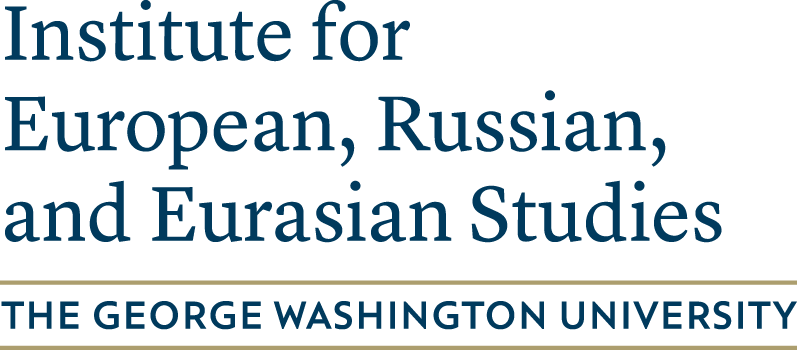
INSTITUTE FOR EUROPEAN, RUSSIAN AND EURASIAN STUDIES
Subscribe to IERES
Receive news and updates about IERES events.
